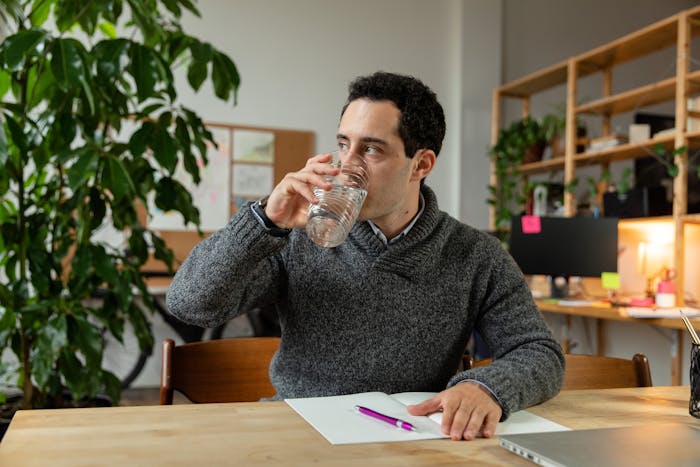Do you live in Norwich and are you concerned about your drug or alcohol use and wondering if you might need rehab help?
Is your drinking or drug use affecting your health, family and employment?
We provide instant access to many rehabilitation centres located in Norwich.
You will not be expected to join any sort of ‘waiting list’ before you are able to join the comprehensive residential drug & alcohol rehab treatment options we help to provide.
At Rehab 4 Addiction, we believe your addiction is a medical emergency requiring urgent treatment. [1]
Rehab 4 Addiction in Norwich
Address: 9/11 Lower Goat Lane, Norwich, Norfolk, Norwich. NR2 1ELTelephone: 01603 954 419
Business hours: Open 24 Hours/7 days a week
Services in Norwich: Addiction Treatment, Alcohol Detoxification, Alcohol Rehabilitation, Drug Rehabilitation, Residential Rehab for Addiction, Alcohol Home Deto

It is common for those suffering from drug or alcohol addiction to not want to pursue drug and alcohol rehab treatment in Norwich.
Denial and anxiety can put a lot of people off taking the first step in starting the recovery process, so family and friends can sometimes hold interventions in order to encourage their loved ones to begin the road to recovery at a local drug and alcohol rehab.
An intervention involves the close family and friends of an individual coming together to support them in their pursuit of rehab treatment.
They establish the problems they are seeing, highlight the effects that the addiction is having on them, and encourage the individual to start treatment in Norwich.
Proceedings can also be supported by the presence of a professional interventionist who can ensure that the conversation remains supportive and productive, as well as provide guidance on suitable drug and alcohol rehab treatment in the local area.
A specific kind of intervention style that has been known to have good results is the CRAFT approach, [2] a method that involves an individual’s family and friends rewarding them for taking the route of sobriety and recovery, helping to encourage positive behaviour and making the willing pursuit of rehab treatment more likely.
For more information about intervention support in Norwich, all our expert team today on: 0800 140 4690.

The cost of undergoing the drug and alcohol rehab process in Norwich will depend on the kind of drug or alcohol rehab programme an individual chooses.
The options and their respective prices are as follows:

There are a range of options out there for drug and alcohol rehab treatment in Norwich, and each individual must decide whether they are going to enrol on a public council programme or pay for private drug and alcohol rehab treatment before they begin.
There are, of course, positives and negatives to both forms of drug and alcohol rehab treatment, so each individual case will need to be assessed to determine which option is most suitable for them.
NHS and other free drug and alcohol addiction services [3] available in Norwich include:
Address: Adobe House, 5 Barton Way, Norwich, NR1 1DL
Telephone: 01603 514 096
Website: https://www.changegrowlive.org/alcohol-drug-behaviour-change-norfolk
Address: Mary Chapman House, Hotblack Road, Norwich, NR2 4HN
Telephone: 01473 237 055
Address: 70-80 Oak Street, Norwich, NR3 3AQ
Telephone: 01603 626 123
Website: https://www.matthewproject.org/
Other sources of help outside of the rehab treatment include the National Institute for Health and Care Excellence, a local NHS Foundation Trust and the National Association for Children of Alcoholics.
You can also seek help from drug and alcohol addiction organisations outside of the rehab framework such as Samaritans, Change Grow Live, Turning Point, We Are With You, Al-Anon, and Alateen.

Below we’ve listed the benefits and drawbacks of free and council-provided drug and alcohol rehab treatment in Norwich.

Below we’ve listed the benefits and drawbacks of private drug and alcohol rehab treatment in Norwich.
Call our expert team today on: 0800 140 4690.

Undergoing drug or alcohol rehab treatment in Norwich will require individuals to arrange for time off from school or work, and knowing how long they can expect to be away can make this much easier to arrange.
On average, it takes around 28-days for an individual to complete rehab, however, this duration can vary based on several factors.
These include:
Although formal rehab treatment can differ from one person to another, the full recovery period can last anywhere from six months to five years. [6]

While it is possible to detox at home in Norwich without medical assistance from a drug and alcohol rehab or other healthcare provider, the likelihood of it being successful is very limited.
It is not recommended that individuals suffering from drug or alcohol addiction attempt this method because there are many risks associated with unmonitored alcohol withdrawal, and mismanaging the process can prove very dangerous.
Some of the risks [7] that come along with this include:
Get the help you need from a rehab in Norwich to ensure that your alcohool detox is safe and effective by calling our expert team today on: 0800 140 4690.

For many, the prospect of entering a drug and alcohol rehab facility can be daunting. The options that allow individuals to stay at home and undergo detox, therefore, can be of immense interest.
With this form of detox, individuals are first assessed by a medical professional to determine that their alcohol addiction is suitable for home treatment; i.e. their symptoms do not pose a threat to their well-being and formal rehab supervision is deemed unnecessary.
Following this, arrangements are made to supply them with a substance called Librium, also known as chlordiazepoxide.
As an individual stops their substance use, their body and brain chemistry are thrown into an imbalance and harmful withdrawal symptoms spark as a result.
Taken in the form of tablets, these benzodiazepines help with the first few days of detox by reducing the impact of withdrawal symptoms such as shaking, nausea and insomnia.
By keeping the hyperactive transmitters of the brain under control, Librium keeps the body calm and regulates the spike in distress so that an individual can better withstand the obstacles of becoming sober whilst at drug and alcohol rehab.
It is important to remember that home detox, while effective, is not as safe as an inpatient rehab detox due to the lack of direct medical supervision.
While there are routine check-ups conducted, constant monitoring of physical and mental well-being can only be achieved within a dedicated rehab facility.
A self-detox does not involve any check-ups or medicinal support from a drug and alcohol rehab centre, and it is solely up to the willpower of the individual to combat their drug or alcohol addiction.
Self-detox is very unlikely to be successful, and the health risks associated with breaking a substance abuse habit without drug and alcohol rehab help – also known as going ‘cold turkey’ – can put an individual in danger of hurting themselves.
Call our expert team today on: 0800 140 4690

In order to treat cocaine addiction, rehabilitation involves a process of working through the underlying causes of why an individual feels the need to sustain their substance use.
Unlike with alcohol addiction, the physical component of cocaine addiction is not dominant and so working through the psychological motivations for taking cocaine is the fundamental route to recovery at cocaine rehab.
Within a Norwich-based rehab programme, there are several methods that can be utilised to work through an individual’s motivations for sustaining their cocaine use, focused around a wide range of therapies.
The choice of which one to use will depend on the individual and their preferences.

Heroin is a substance that strongly influences the mind and body, and addictions develop due to both a physical and psychological dependency on it.
To alleviate the body of its dependency on heroin, consumption of the substance must be gradually withdrawn whilst at drug and alcohol rehab
Within a rehab treatment facility, this is a carefully monitored process using substitute substances, and the progress and well-being of an individual are closely watched by doctors and addiction specialists.
The reason for this level of care is that, even at rehab, detoxing from heroin is not a simple process.
Like alcohol, the withdrawal symptoms brought on by quitting heroin can trigger a lot of harmful health complications, so it is essential to maintain positive progress and ensure that an individual does not come to any harm during detox at heroin rehab.
For this reason, heroin detoxification is often assisted at rehab via the prescription of benzodiazepines.
Buprenorphine or Naloxone, for example, can be used to limit the impact of heroin withdrawal symptoms and protect both an individual’s well-being and progress whilst at drug and alcohol rehab.

Cannabis contains THC, and when individuals take the substance, this chemical causes a variety of effects in their brains which need to be addressed at drug and alcohol rehab.
Individuals feel drowsier and have a poor ability to make decisions, but they also feel an intense sense of pleasure.
The desire to regain this sensation of being ‘high’ – as well as an increased tolerance to the substance thanks to repeated use – can encourage individuals to take cannabis more frequently and in higher doses, eventually needing rehab treatment to properly address.
To curb cannabis use disorder or cannabis addiction, the rehab process in Norwich involves a variety of therapies.
Unlike alcohol, cannabis does not trigger physical dependency but instead relies on individual’s having a psychological reliance on the regular consumption of cannabis.
Therefore, treating cannabis addiciton at drug and alcohol rehab in Norwich does not follow the route of detoxification, but instead depends on tackling the underlying causes [9] of an individual’s desire to become ‘high’.
Including addiction counselling, support groups, and Cognitive Behavioural Therapy (CBT), therapy activities at rehab are designed to help individuals open up about and recognise their mental health complications.
They are encouraged to identify what emotions or thoughts tend to push them towards a desire to consume cannabis – such as anxiety, fear, or stress – and practise healthier coping mechanisms that can help them after rehab has ended.
Call our expert team today on: 0800 140 4690.

Within drug and alcohol rehab in Norwich or near Norwich, there are a range of therapeutic activities that can be used to help individuals engage with and work through the underlying causes of their drug or alcohol addiction.
These can take place on a one-on-one basis or as part of a group, and it can be helpful to learn what options are available at addiction rehab for this aspect of recovery.
In addition to the above therapies, there are a range of other psychiatric treatments available at drug and alcohol rehab.
These can include contingency management and person-centred care, amongst many other specialised rehab treatments.
Call our expert team today on: 0800 140 4690.

Addiction is a complicated condition to treat at drug and alcohol rehab because it very often arises in connection with other mental health conditions.
While physical dependency stems from the regular consumption of an addictive substance (such as alcohol or heroin), the initial decision to take a substance and the resulting psychological dependency often stem from conditions such as depression, anxiety and trauma.
When treating addiction at rehab, it is therefore incredibly important to acknowledge the presence of any of these conditions [10] and what relationship they might have with the substance abuse.
This is known as dual diagnosis, and relapse will always be a threat to an individual’s addiction recovery progress and rehab journey if it is not acknowledged.
Once an individual’s other mental health problems have been identified, treatment at drug and alcohol rehab can then focus on untangling an individual’s dependency on drugs or alcohol as a coping mechanism for these conditions.
It will also help establish healthier ways of handling their depression, anxiety, trauma or other conditions in future, helping to better ensure their quality of life after rehab.
Mental health conditions that can be treated alongside addiction at rehab include:
You can also find general mental health support outside of the drug and alcohol rehab structure at Rethink Mental Illness, Papyrus, Young Minds, Samaritans and Mind UK.

Whilst treatment at a drug and alcohol rehab clinic in Norwich is the most effective method for working through addiction, there are nevertheless many addiction treatment alternatives.
Not everyone will have the necessary time or funds to enter a drug and alcohol rehab programme immediately, so it can be helpful to know what other options are out there that might be helpful.
It must be emphasised, however, that the following methods of recovery will vary in effectiveness based on the severity of an individual’s addiction and what symptoms they are experiencing.
Rehab in Norwich is the most appropriate option in most cases, and severe substance abuse should ideally be treated under the supervision of medical professionals.
However, a wide range of rehab alternative and supplementary organisations exist to offer support in Norwich, including:
For more information on rehab treatment options and alternatives in Norwich, call our expert team today on: 0800 140 4690.

For the ultimate rehabilitation experience in Norwich, contact Rehab 4 Addiction today on 0800 140 4690.
Alternatively, reach out to us through our online contact form to get the help you need to beat drug and alcohol addiction.
We have assisted thousands of people in Norwich and across East Anglia to access drug and alcohol rehab and overcome addiction, and we are confident that we can help you too.
We look forward to speaking to you soon.
Every rehab in England and Wales that we work with is vetted by the Care Quality Commission (CQC). [15]
Rehab 4 Addiction offers a range of addiction treatments in Norfolk, including in King’s Lynn, Great Yarmouth, Thetford, Aylsham, Acle, Holt, Fakenham, Cromer, North Walsham, Attleborough, Hunstanton, Burnham Market, Sheringham, Wells-next-the-Sea, Swaffham, Dereham, Wymondham, Diss, Blakeney, Downham Market, Costessey, Wroxham and many others.
This article was written by Boris Mackey. You can connect with Boris online at LinkedIn or X.com.
[1] https://nida.nih.gov/publications/drugs-brains-behavior-science-addiction/drug-misuse-addiction
[2] https://pmc.ncbi.nlm.nih.gov/articles/PMC4394369/
[3] https://www.nhs.uk/Live-well/addiction-support/drug-addiction-getting-help/
[5] https://www.rcpsych.ac.uk/news-and-features/latest-news/detail/2020/10/06/
[6] https://www.racnj.com/the-five-stages-of-addiction-recovery/
[7]https://web.archive.org/web/20230315051842/https://pubs.niaaa.nih.gov/publications/arh22-1/61-66.pdf
[8] https://premierneurologycenter.com/blog/neurologic-diseases-associated-with-alcohol-consumption/
[9] https://medlineplus.gov/ency/article/001522.htm
[10] https://www.ncbi.nlm.nih.gov/pmc/articles/PMC6241194/
[12] https://meetings.ukna.org/meeting/search
[13] https://meetings.cocaineanonymous.org.uk/meetings/
 After completing or trying your best for Dry January, it can be tempting to count the days left until you can give it all up and return to drinking. But there are multiple benefits to maintaining your abstinence into February and longer. During Dry January, your liver begins to repair itself, say if you were […] .... Read More
After completing or trying your best for Dry January, it can be tempting to count the days left until you can give it all up and return to drinking. But there are multiple benefits to maintaining your abstinence into February and longer. During Dry January, your liver begins to repair itself, say if you were […] .... Read More
 Substance addiction, also referred to as Substance Use Disorder (SUD), is a chronic and relapsing brain disease that affects both physical and psychological functioning. It develops when repeated exposure to drugs or alcohol alters brain chemistry, particularly the reward and motivation systems, leading to compulsive substance use despite harmful c .... Read More
Substance addiction, also referred to as Substance Use Disorder (SUD), is a chronic and relapsing brain disease that affects both physical and psychological functioning. It develops when repeated exposure to drugs or alcohol alters brain chemistry, particularly the reward and motivation systems, leading to compulsive substance use despite harmful c .... Read More